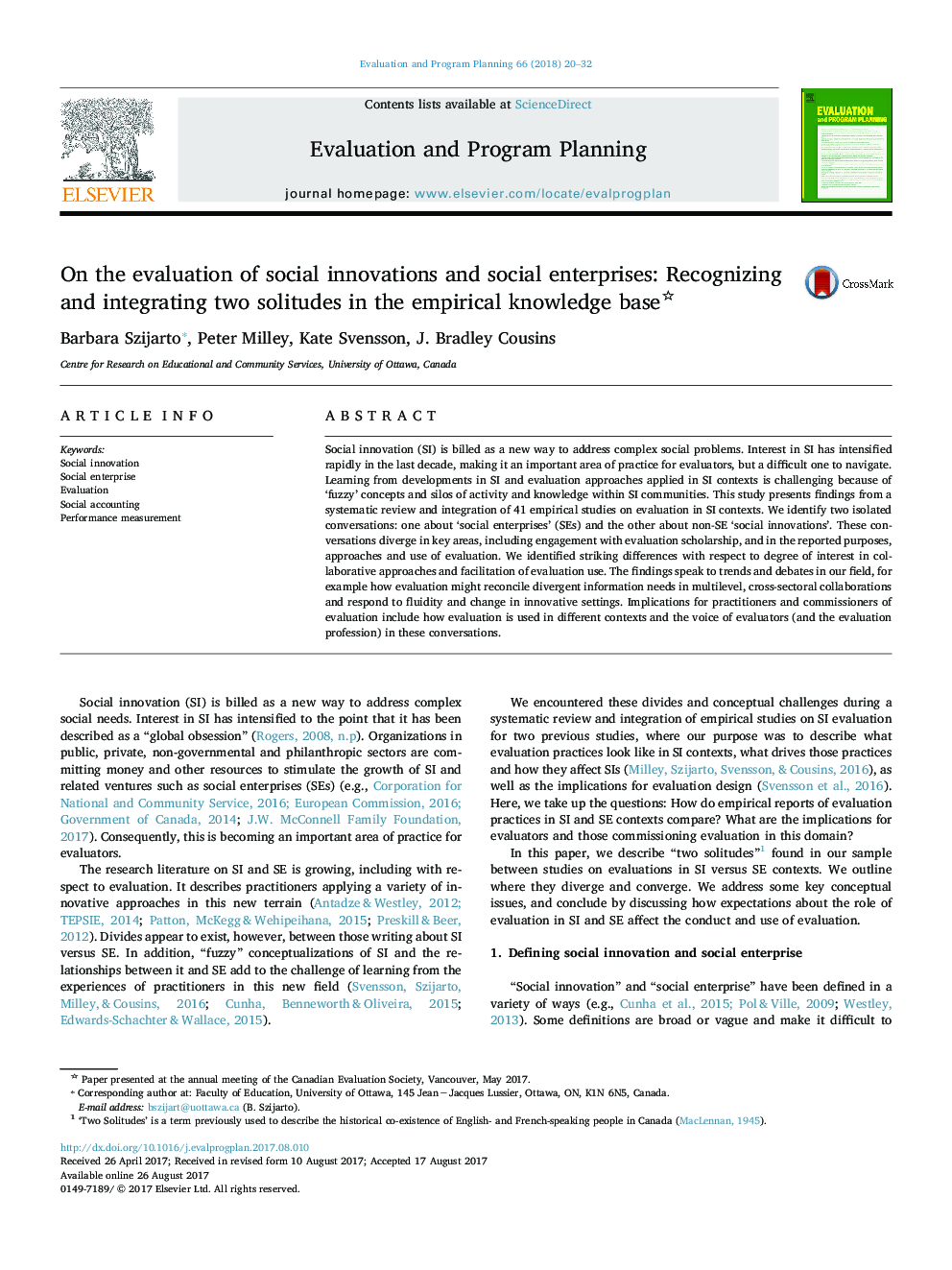| کد مقاله | کد نشریه | سال انتشار | مقاله انگلیسی | نسخه تمام متن |
|---|---|---|---|---|
| 4930874 | 1432703 | 2018 | 13 صفحه PDF | دانلود رایگان |
- A knowledge divide exists in the empirical literature between studies on evaluation of Social Innovation and evaluation of Social Enterprise.
- Key differences relate to engagement with evaluation scholarship, purposes for evaluation, approaches to evaluation and use of evaluation.
- Factors reported to influence evaluation success were similar in both SI and SE studies: conflict, quality of relationships, time and capacity.
- Our findings speak to debates about how evaluation practice can reconcile micro and macro-level needs and accommodate fluidity and change.
- Our findings support a call for greater exchange of ideas between these two domains of practice.
Social innovation (SI) is billed as a new way to address complex social problems. Interest in SI has intensified rapidly in the last decade, making it an important area of practice for evaluators, but a difficult one to navigate. Learning from developments in SI and evaluation approaches applied in SI contexts is challenging because of 'fuzzy' concepts and silos of activity and knowledge within SI communities. This study presents findings from a systematic review and integration of 41 empirical studies on evaluation in SI contexts. We identify two isolated conversations: one about 'social enterprises' (SEs) and the other about non-SE 'social innovations'. These conversations diverge in key areas, including engagement with evaluation scholarship, and in the reported purposes, approaches and use of evaluation. We identified striking differences with respect to degree of interest in collaborative approaches and facilitation of evaluation use. The findings speak to trends and debates in our field, for example how evaluation might reconcile divergent information needs in multilevel, cross-sectoral collaborations and respond to fluidity and change in innovative settings. Implications for practitioners and commissioners of evaluation include how evaluation is used in different contexts and the voice of evaluators (and the evaluation profession) in these conversations.
Journal: Evaluation and Program Planning - Volume 66, February 2018, Pages 20-32
